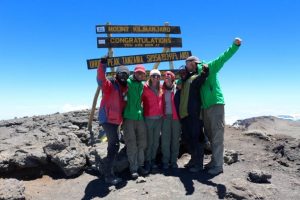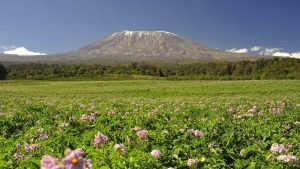The Vulnerability of Ngorongoro Crater Lions
The Ngorongoro Crater, located in Tanzania, is a UNESCO World Heritage Site and home to a diverse array of wildlife, including a population of lions. However, despite their status as powerful apex predators, the lions of Ngorongoro Crater are facing numerous threats that make them vulnerable to population declines and potential extinction.
Threats Facing Ngorongoro Crater Lion Population
One of the primary threats facing the lions of Ngorongoro Crater is habitat loss and fragmentation. The increasing human population in the surrounding areas has led to the encroachment of settlements and agriculture into lion territory, reducing the amount of available space for the lions to roam and hunt. This fragmentation of their habitat can lead to isolation of lion populations, making them more susceptible to inbreeding and genetic disorders.
Another major threat to the Ngorongoro Crater lion population is human-wildlife conflict. As human settlements expand, conflicts between local communities and lions often arise, leading to retaliatory killings of lions in response to livestock predation. This loss of lions due to human-wildlife conflict further contributes to the decline in their population.
Additionally, poaching poses a significant threat to the lions of Ngorongoro Crater. Although hunting lions is illegal in Tanzania, the demand for lion parts in traditional medicine and trophy hunting continues to drive poaching activities. The illegal trade in lion parts not only puts individual lions at risk but also threatens the overall population of lions in the area.
Conservation Efforts to Protect Ngorongoro Crater Lions
In response to these threats, there are ongoing conservation efforts aimed at protecting the Ngorongoro Crater lion population. Conservation organizations and government agencies are working together to address the issues of habitat loss and fragmentation by establishing protected areas and wildlife corridors to allow lions and other wildlife to move freely between different habitats.
Community-based conservation initiatives are also being implemented to reduce human-wildlife conflict in the area. By engaging with local communities and providing incentives for coexistence, such as compensation for livestock losses and support for sustainable livelihoods, these initiatives aim to mitigate conflicts and reduce the need for retaliatory killings of lions.
Furthermore, anti-poaching efforts are being intensified to combat the illegal trade in lion parts. Increased patrolling and monitoring of lion populations, as well as public awareness campaigns to educate communities about the importance of conserving lions, are key components of these anti-poaching efforts.
It is essential that these conservation efforts continue and are supported by all stakeholders to ensure the long-term survival of the Ngorongoro Crater lion population. By addressing the threats facing the lions and implementing sustainable conservation strategies, we can protect these majestic animals for future generations to appreciate and admire.
For a chance to witness the beauty of the Ngorongoro Crater lions and support their conservation, consider booking a safari tour with Sunset Africa Safari. For booking requests, please contact info@sunsetafricasafari.com.



